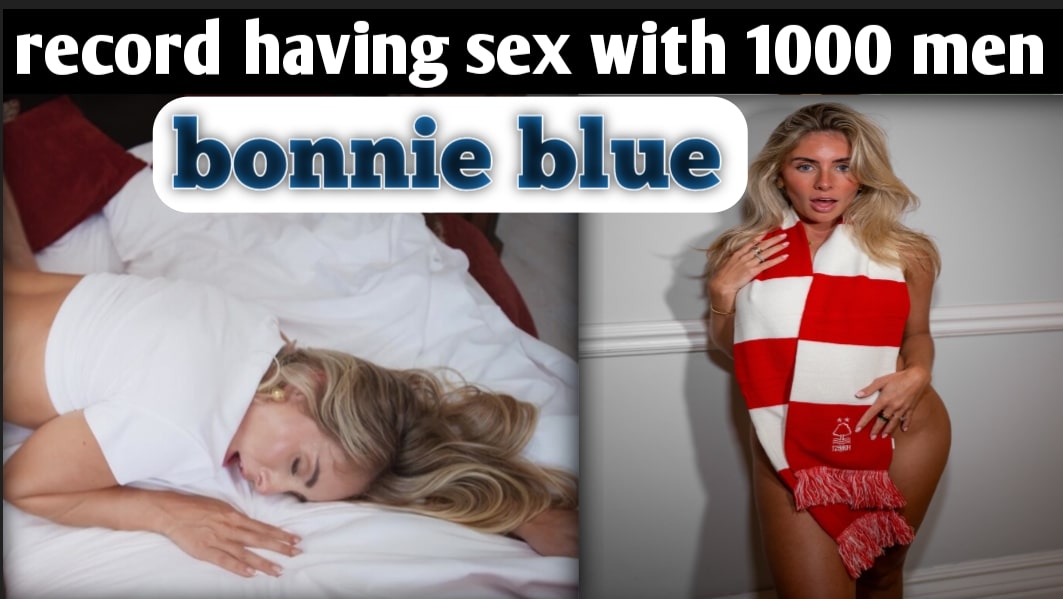
Bonnie Blue Controversies
Bonnie Blue (born 1999) is a British adult content creator and OnlyFans personality hailing from Stapleford, Nottinghamshire. Known for her polarizing career choices and public statements, she gained significant attention in 2024 due to her podcast appearances and controversial content production involving students and married men. Her actions have sparked intense backlash on social media, leading to bans from Australia and Fiji for visa violations. In January 2025, an advertisement featuring Blue, allegedly tied to a gambling affiliate, triggered a formal complaint to the Secretary of State for Culture, Media, and Sport in the UK.
Early Life and Career
Born and raised in Stapleford, Nottinghamshire, Bonnie Blue relocated to Australia in 2021. Before entering the adult entertainment industry, she was married and worked in the recruitment sector. In 2023, she transitioned into the sex industry, starting as a webcam model. Surprised by the income potential, she shifted her focus to creating content on OnlyFans.
Blue’s niche revolved around content featuring young adults, particularly 18- and 19-year-old students. She claimed these individuals were her primary audience. Over time, she expanded her content to include married men, reportedly after an incident involving a jealous parent of one of her co-stars. Later, she diversified further, creating content with university lecturers.
Rise to Controversy
In 2024, Blue garnered widespread attention for her unconventional promotional methods. In March, she visited Cancún and later attended events such as schoolies’ week in Australia and freshers’ week in the UK. During freshers’ week, she shared her location online and allowed consenting men to participate in her videos free of charge, provided they agreed to being filmed for her online content. She conducted similar tours in cities like Nottingham, Derby, and Birmingham throughout the year.
Her podcast appearances on shows like Dream On with Lottie Moss and Saving Grace with GK Barry further fueled her notoriety. Viral clips of Blue discussing her experiences with “hundreds” of young men sparked outrage on platforms like Twitter. Critics accused her of exploiting vulnerable individuals, while others debated the ethical implications of her work with barely legal adults. Some questioned whether filming such content bordered on moral ambiguity.
Blue responded to criticism by suggesting that those unhappy with the legal age of consent should advocate for legislative changes. Her remarks, particularly those targeting women audiences, were labeled as misogynistic, adding further fuel to the backlash. In one instance, Barry removed Blue’s podcast episode due to the controversy.
Mainstream Media Appearances
In November 2024, Blue appeared on ITV’s This Morning, engaging in a heated debate with Ashley James about the ethicality of her content. The episode received 188 complaints to Ofcom. Following the debate, James wrote an op-ed for Grazia criticizing Blue’s views and noting that prior interviews had failed to hold her accountable in meaningful ways.
Journalists compared Blue’s rise to other polarizing figures. Claire Hubble from The i highlighted her as an example of the “outrage economy,” while Sophie Wilkinson described her as a product of broader societal issues rather than an isolated phenomenon.
International Bans
Later in November 2024, Blue faced legal issues during her travels. After violating the terms of her tourist visa in Australia, she was banned from entering the country. Shortly thereafter, she traveled to Fiji to create content but faced similar repercussions. Pio Tikoduadua, a Fijian cabinet minister, issued a ban on Blue and her collaborators for breaching visa regulations.
2025 and Beyond
In January 2025, Blue claimed to have engaged in sexual activities with over 1,000 men in a single day. This stunt drew comparisons to Andrew Tate and sparked debates about societal values and gender dynamics. Critics like Gareth Roberts from The Spectator argued that such acts encouraged negative male behaviors, while others, such as Katherine Ryan, labeled the men involved as “losers.”
The stunt also reignited discussions about the media’s role in covering such events. Eli Cugini from Dazed criticized tabloids for sensationalizing stunts like Blue’s while failing to address underlying issues. Wilkinson, writing for Elle, characterized Blue as a symbol of hypersexualization and a reflection of contemporary sexual culture.
Felicity Martin of Glamour questioned why the criticism predominantly targeted Blue rather than the men who participated in her stunts. She argued that such discourse often minimized the broader societal issues surrounding gender and power dynamics.
Gambling Ad Controversy
In late January 2025, an advertisement featuring Blue sparked yet another controversy. The video, reportedly uploaded by a company claiming affiliation with the gambling platform Stake, showed Blue making explicit references to her activities with young men. The ad, which was later removed, prompted a formal complaint from Will Prochaska of the Campaign to End Gambling Ads. He urged the Secretary of State for Culture, Media, and Sport to address the issue, citing concerns over its promotion of inappropriate behavior.
Conclusion
Bonnie Blue’s career continues to ignite heated debates about ethics, legality, and the media’s role in amplifying controversy. While her actions have drawn widespread criticism, they also highlight deeper societal issues regarding consent, exploitation, and the intersection of morality and entertainment.